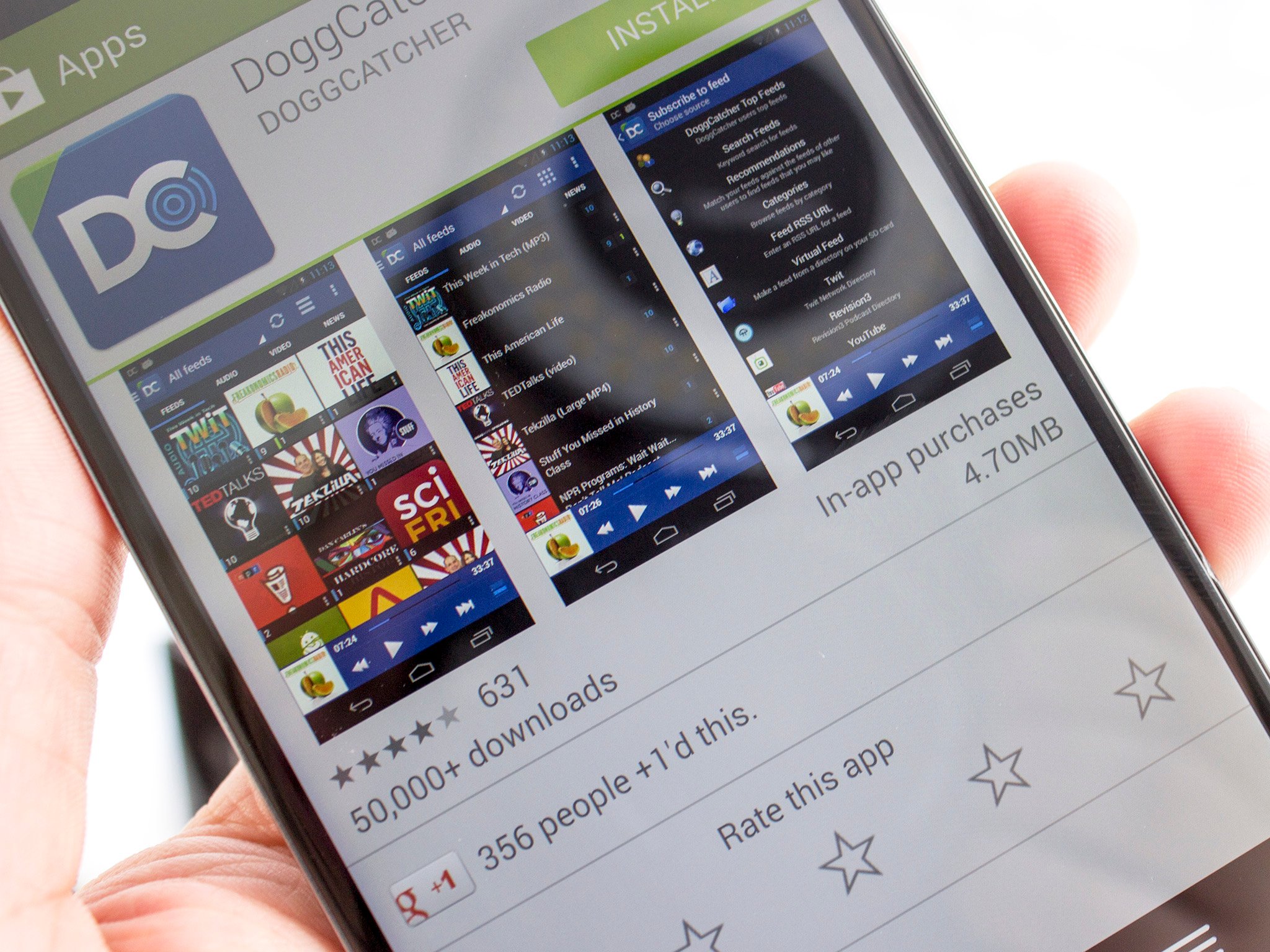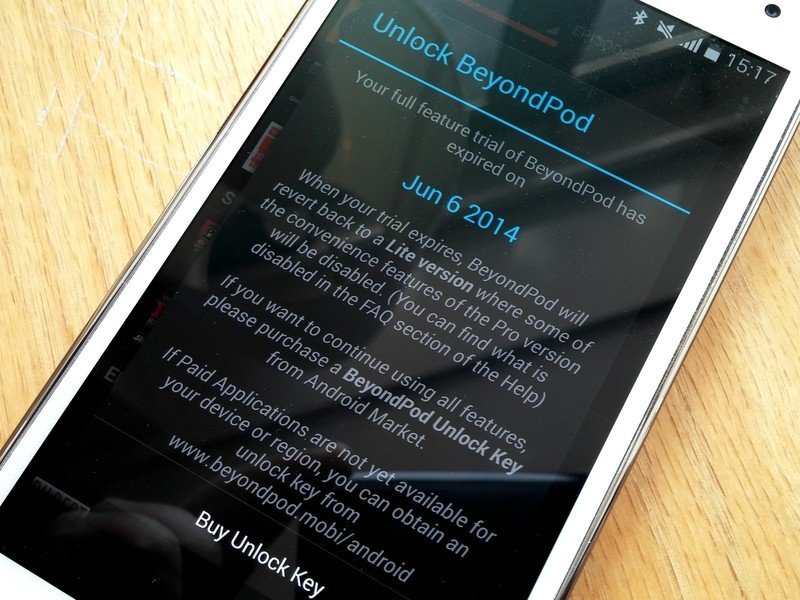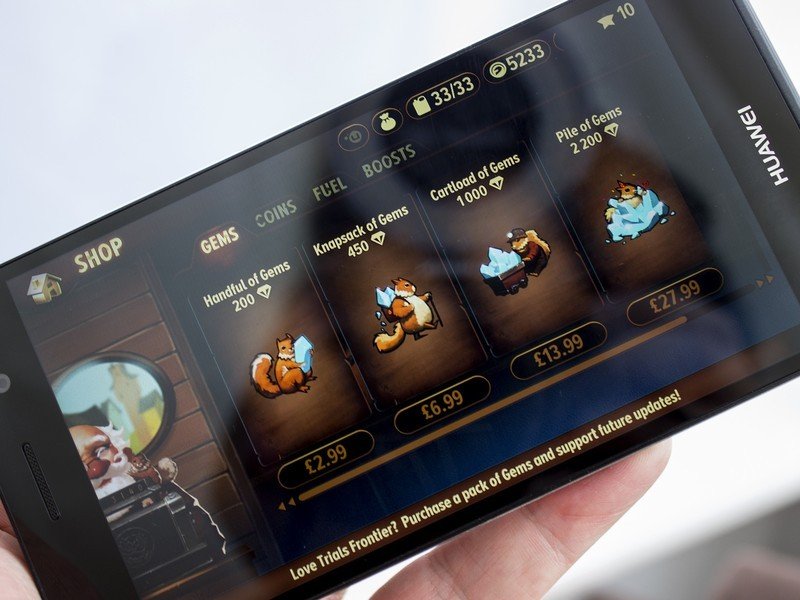In-app purchases: The good, the bad and the evil

In-app purchases are something we're all going to come across, here's the lowdown on what's good, and not so good

In-app purchases; a highly contentious topic of conversation, but something we have to accept. Developers want to get paid for their work — and rightly so — and for some the in-app purchase model is the chosen way to achieve that. Some folks will never believe they're anything other than evil tricks designed to get you to spend more money, but that isn't always the case.
As part of a continuing series looking at the ins and outs of Google Play we're examining the good, the bad, and the downright evil that comes with in-app purchases.
The good

In-app purchases can be good. No, really. You just need to take stock of what you're being asked to pay for and why in order to decide this for yourselves. Thankfully Google helps us right from the word go. When you go to download an app — whether it be free or paid — the Play Store will tell you right there in the listing whether or not that app has in-app purchases. It doesn't sadly give you any indication of what those purchases might be, not unless the developer has written them into the app description.
The definition of "good" in-app purchases will vary from person to person. Generally speaking positive examples would be a free-trial version of an app with a purchase upgrade option to the full version, getting access to additional features in an app that will enhance your experience or monthly subscription fees for a service you're going to keep using. These use the in-app purchase model as we'd like to see it being used.
The word "freemium" is tossed around a lot these days, too. Mainly referring to games — Candy Crush Saga being one of the recent big names — where the initial download is free but you'll be required to cough up at some point in the game to keep playing. Again, assess your own feelings when presented with the situation. If you have to pay to progress, then it's probably a bad thing.
The bad and the evil
Be an expert in 5 minutes
Get the latest news from Android Central, your trusted companion in the world of Android

We've lumped these two categories together because it's sometimes difficult to properly distinguish. It can come in several different forms, but the best way to describe it is that you're constantly being pressured to buy something. It's something you need to watch out particularly if you've got kids that are playing games and using apps on your Android phone or tablet.
Be that a game from a major studio which requires you to pay just to unlock areas of the game to play, or to continue to progress without waiting an extreme amount of time, or a game designed for kids that hooks them in and then hits them with a paywall, it's all bad.
Our advice – especially where your kids are involved – is that you download the app, use it, and if you're not happy when you hit the first paywall, walk away. Developers deserve to get paid, absolutely, but sometimes a good user experience is a distant second to that.
Pro-tips to help you help yourself
- Read the Google Play Store reviews before you download an app with in-app purchases. Unless it's literally just hit the Play Store, those guys and gals who have gone before you will be sure to voice their displeasure if the in-app purchase situation isn't acceptable. Likewise, leave your own reviews afterwards to help out other folks.
- Password protect your account if anyone other than you will be using your device. If you leave your kids with unrestricted access to spend great piles of cash, they will.
- If you're into a game that keeps asking for payments, set yourself strict limits. Personally speaking I've spent a little money on Real Racing 3 because I enjoy it, but it's easy to get carried away.
- Don't assume because an app is free to download it's necessarily just after your wallet. Not all developers go overboard, but as soon as you feel uncomfortable, walk away.
There isn't really a right and wrong way to feel about in-app purchases. Everyone feels differently about spending their own money, and that's absolutely important to remember. If you don't like something, just walk away. Don't be pressured to spend anything you're not comfortable with.
For even more on in-app purchases, and Freemium games in particular, be sure to check out Mobile Nations' special coverage, Freemium Rising.

